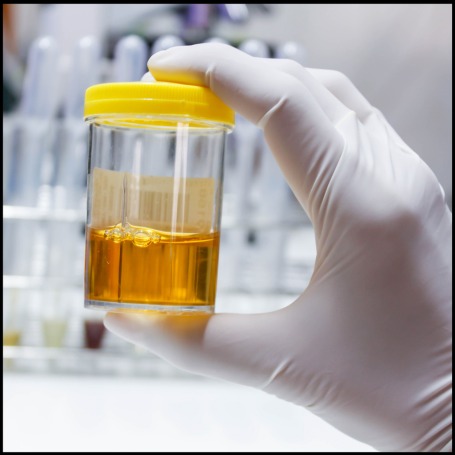
A urine culture and sensitivity test is designed to detect the presence of bacteria in the urine and assess their susceptibility to various antibiotics.

This test is commonly used to diagnose urinary tract infections (UTIs) and to guide treatment decisions. The procedure involves collecting a urine sample, culturing it in a lab to grow any bacteria present, and then testing these bacteria against different antibiotics to identify the most effective treatment.
1] Sample Collection: The urine culture test pune begins with the collection of a urine sample. It's essential to follow proper hygiene and collection instructions to avoid contamination. A mid-stream urine sample is usually recommended for accurate results.
2] Culturing: The collected urine sample is placed in a sterile culture medium in a laboratory. The medium promotes bacterial growth, allowing any bacteria present in the urine to multiply.
3] Identification: After the bacteria have grown, the lab technicians identify the type of bacteria present using various methods, including microscopic examination and biochemical tests.
4] Sensitivity Testing: Once the bacteria are identified, they are tested against a range of antibiotics to determine which ones are effective in inhibiting their growth. This helps in selecting the most appropriate antibiotic for treatment.
In a healthy individual, a urine culture should ideally show no growth of bacteria. A urine culture and sensitivity normal values indicating less than 10,000 colony-forming units (CFUs) per milliliter is typically considered normal, as this suggests that the urine sample is not contaminated and that no significant bacterial growth is present.
1] Positive Result: A positive urine culture test result pune indicates that bacteria have been identified in the urine sample. The type of bacteria and the quantity will be reported. This result confirms a bacterial infection in the urinary tract.
2] Negative Result: A negative urine culture test result suggests that no bacteria were grown from the urine sample, indicating the absence of a bacterial infection. However, if symptoms persist, further testing may be required to rule out other causes of the symptoms.
At Diagnopein, we offer comprehensive, accurate, and timely diagnostic services, including the urine culture and sensitivity test Pune. With our NABL-accredited labs, cutting-edge technology, and skilled technicians, you can be assured of reliable results every time. Get your results quickly, especially when time is crucial in detecting severe infections.
Competitive pricing without compromising on quality. Our team of experienced professionals ensures the test is conducted smoothly with minimal discomfort. We provide not just the urine culture and sensitivity test results but insights into your health condition, helping you and your doctor make informed decisions about treatment. For more information call us at +91 9204 108108.
1. Culture Method
2. Sample
3. Colony Count
4. Organism(s) Isolated
5. Culture Report: Culture yields growth of
6. Culture isolated after 7 days :
7. Culture isolated after 14 days:
8. Culture isolated after 21 days:
9. Ampicillin
10. Amikacin
11. Amoxicillin clavulanate
12. AMOXYCLAV
13. cefoperazon+sulbactam
14. Cefuroxime
15. Cefepime
16. Cefotaxime
17. Cefixime
18. Ciprofloxacin
19. Colistin
20. Ertapenem
21. Fosfomycin
22. Gentamicin
23. Imipenem
24. Levofloxacin
25. Meropenem
26. Norfloxacin
27. Nitrofurantoin
28. Piperacillin-tazobactam
29. Tigecycline
30. Trimethoprim-Sulfamethoxazole (Cotrimoxazole)
31. Penicillin
32. Cefoxitin
33. Teicoplanin
34. Vancomycin
35. Linezolid
36. Tetracycline
Following any specific instructions provided by your healthcare provider. Ensuring proper hygiene before collecting the urine sample to minimize contamination. Avoiding the use of antibiotics before the test, unless prescribed by your doctor.
The urine culture and sensitivity test is generally safe and non-invasive. Risks are minimal and may include slight discomfort during sample collection. There are no significant side effects associated with the test itself.
Diagnose bacterial infections in the urinary tract. Identify the specific type of bacteria causing the infection. Determine which antibiotics are most effective in treating the infection. Guide the healthcare provider in selecting the most appropriate antibiotic therapy.
The urine culture test involves collecting a urine sample, usually through a midstream clean-catch method, to reduce contamination. The sample is then sent to a laboratory where it is cultured to grow any bacteria present. Once bacteria are identified, they are tested against various antibiotics to determine which ones effectively inhibit their growth.